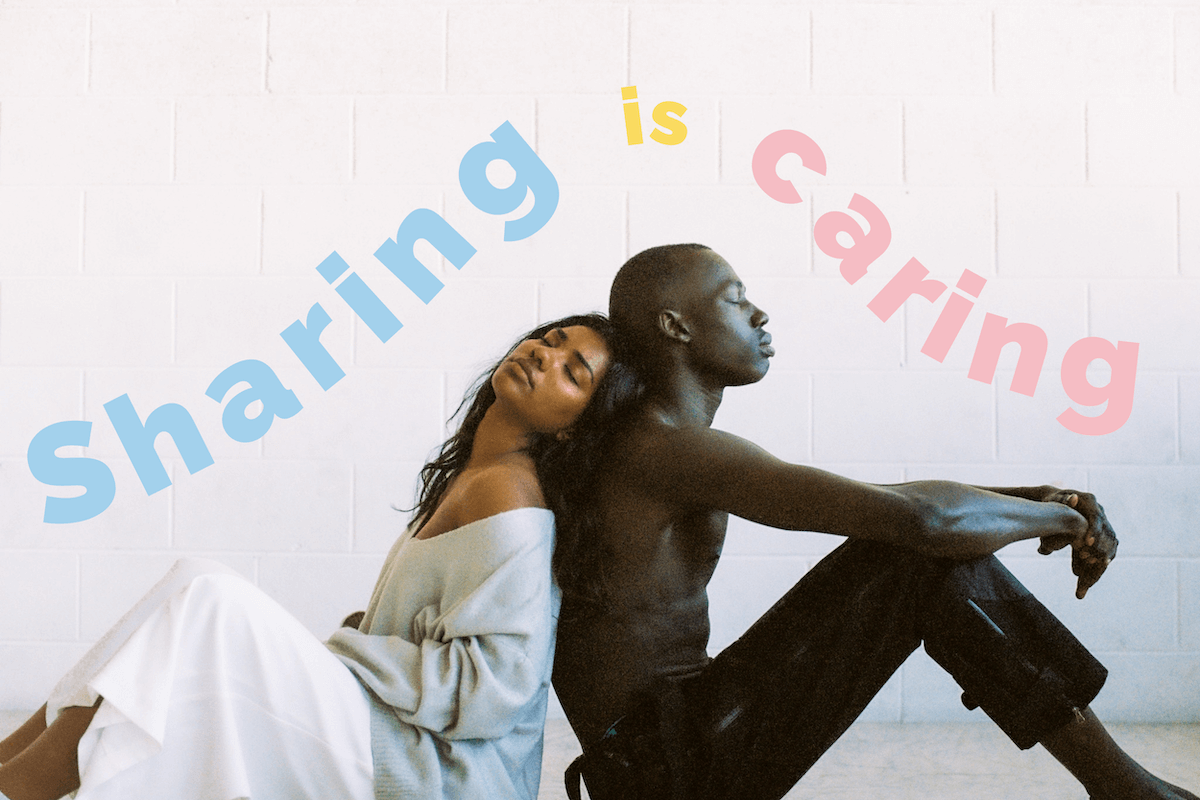At Innermost, anything that makes us happier is an absolute must-have, and a win-win. So, when we came across this recent study that claimed that we can up our happiness levels by engaging in shared experiences, we just had to take a look (and try it for ourselves). It turns out shared experiences are amplified and sharing, and happiness are intrinsically linked.
Who knew? Sharing really is caring, after all.
So if you’re looking for great ways to reduce your stress levels, up your happiness levels and get your detox on (aside from taking The Detox Booster, of course) then you’re in the right place.
Let’s break down the study, shall we?
The sharing study
The sharing study was broken down into two simple parts, but both found the same result: sharing experiences are amplified, whether the experience is good or bad, when compared to completing or taking part in experiences alone (even without communicating). How crazy is that?
The first study required participants to take part in a chocolate tasting exercise, but the chocolate they were tasting was pleasant, sweet and enjoyable. They tried the chocolate whilst they were alone and the other person was engaged in another activity, and a second time when they are trying the chocolate at the same time as the other person, creating a shared experience. Both participants marked the experience as more enjoyable when they were in company. Sweet!
To investigate whether these results proved that shared experiences were linked to happiness in general, or just when the experiences were pleasant, a second study took place. In this study, participants engaged in the same strategy when tasting (first alone, second together) but this time, tried unpleasant chocolate. The results of this study distinguished between the two, and supported the idea that sharing and happiness are intrinsically linked.
The psychology of sharing
Sharing intensifies experiences: we know that much. But, how? Well, psychologists have been onto this for some time.
It’s all in the evolutionary approach. A study published by the University of St. Andrews found that sharing is a distinct sign of kinship and team work, and can be traced back all the way to apes in early evolutionary periods.
Now we know that sharing and happiness are linked, how can we start incorporating more shared experiences into our lives? Good question.
Our top inspiration for shared experiences
We know how it is. When you’re trying to think about a fun activity or even just something to do to pass the time, your mind can go blank. Here at Innermost, we asked the team to list their favourite shared experiences to get you some top inspiration. Don’t say we don’t treat you.
- Working out together (a personal Innermost favourite)
Whether you go on a run, spot your partner whilst weightlifting or even take part in a class together, working out together is a great way to get your gym session in and up your shared experiences at the same time.
- Sharing a bath (one aimed for the couples out there, of course)
Get out those candles, stick on a nice playlist and if you’re feeling adventurous, whack out the bubble bath. Sharing a bath isn’t to everyone’s tastes but is a great sharing experience. It’s also a great self-care exercise, if you needed another excuse to relax...
- Embarking on a nature walk
Whether you walk around the local lake, take a trip to the nearest woods or are lucky enough to live near a National Park, getting out and about together in nature is a great way to switch off and spend some quality time and secure a good, shared experience all in one. Winner.
- Giving each other a massage (again, probably best that couples stick to this one)
You don’t have to have an injury to get your significant other to give you a massage!
- Cooking a meal together
If you call yourself a Gordon Ramsay prodigy or not, cooking a meal together can be a really enjoyable shared experience. Whether you make a Spaghetti Bolognese classic or fancy your chances at something more complex, give it a go.
- Going on a wine tasting experience
Who doesn’t love bonding over a good glass of wine? All in moderation, of course.
- Baking a cake
This doesn’t have to be a masterpiece, but a good old bake off is a great shared experience (and a good way to indulge). You can also use our proteins in your sweet cake bakes, too!
- Visit the beach
Whether you get up at the crack of dawn and go for a good old sunrise view, take a day trip to the nearest coast or grab a blanket and go and watch the sunset over the horizon, a visit to the beach is great for your mental health and one of our favourite shared experiences.
The possibilities are endless, and all provide a great opportunity for a well-earned and necessary detox.
Summary
There we have it: sharing brings happiness. We’re sure all the siblings out there are thrilled (not).
On a serious note, shared experiences are more important than ever following a challenging period with lockdowns, restrictions and hardships for pretty much everyone.
Take some time out of your busy days, weekends, and schedules to pencil a date (or friendship date) into the diary and embark on some of our suggestions above. But remember, this list isn’t extensive! So, if you have any ideas for great sharing experiences, let us know over on our Instagram @liveinnermost.
As always, we’d love to hear from you!

















